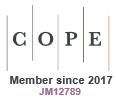Australian Journal of Zoology
Volume 70
Number 5 2022
Incorporating natural mating behaviours, including female mate choice, has seen promising results, but is not yet common practice. Here, the incorporation of female mate choice into a fat-tailed dunnart (Sminthopsis crassicaudata) breeding program influenced sex ratio, aligning with the natural history of this species, but did not contribute to litter or weaning success. These findings emphasise the importance of understanding natural mating systems of species when managing captive breeding programs. Photograph by Brittney Gill.
Integrated pest management is a recommended control method for wild dogs in Australia. This study takes the first step in identifying potential population-specific chemical cues in scat as a step towards supplementing existing strategies with chemical approaches aimed at excluding pure dingoes from agricultural lands. Photograph by Barry Eggleton.
Climate change affects the distribution of parasite species as their hosts may move to or expand their range into areas where the climate is more suitable. Hybridisation between parapatric parasitic species as detected in this study could model future events when other parasitic species either come into secondary contact or increase their overlapping distribution. Hybridisation can potentially further diversify these parasites’ home ranges, host species, and pathogens, exposing host species to novel diseases. Photograph by Dr Gerrut Norval.








